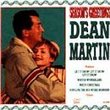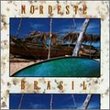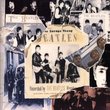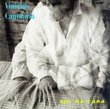| All Artists: Wolfgang Amadeus Mozart, Giacomo Meyerbeer, Ambroise Thomas, Gustave Charpentier, Adolphe Adam, Henry Rowley Bishop, Richard [1] Strauss, Aldo Ceccato, Charles Mackerras, London Philharmonic Orchestra, Royal Philharmonic Orchestra, Charles Wadsworth, Beverly Sills Title: The Singers: Beverly Sills Members Wishing: 0 Total Copies: 0 Label: Decca Original Release Date: 1/1/2001 Re-Release Date: 10/9/2001 Album Type: Enhanced, Original recording remastered Genres: Pop, Classical Styles: Vocal Pop, Opera & Classical Vocal, Historical Periods, Classical (c.1770-1830) Number of Discs: 1 SwapaCD Credits: 1 Other Editions: Beverly Sills: Plaisir D'Amour UPC: 028946790625 |
Search - Wolfgang Amadeus Mozart, Giacomo Meyerbeer, Ambroise Thomas :: The Singers: Beverly Sills
 | Wolfgang Amadeus Mozart, Giacomo Meyerbeer, Ambroise Thomas The Singers: Beverly Sills Genres: Pop, Classical
|
Larger Image |
CD DetailsSimilarly Requested CDs
|
CD ReviewsThe Great Beverly Sills: French And Spanish Style Rudy Avila | Lennox, Ca United States | 01/25/2004 (5 out of 5 stars) "This compilation album showcases the legendary soprano Beverly Sills singing French and Spanish arias. The album's title is from the French Baroque song in track 8 by Giovanni Battista Martini and it means "Joy of Love". Beverly Sills was born in Brooklyn, New York City, and trained in the French/Marchesi style by her vocal coach Estelle Liebling. The French style makes use of head voice, coloratura technique, legato and pianissimo. The fact that Beverly was fluent in French made it a bonus for her to sing in French fluently as well. Her French diction is perfect. Other than Beverly Sills, only Madie Mesple has performed in French opera repertoire most dynamically. It is no wonder then, that Beverly Sills enjoyed great success in the French operas of Massenet- Manon and Thais as well as Delibes' Lakme. This album was recorded in different time periods. Tracks 1-9 were recorded in 1975 and tracks 10-13 earlier in 1961. Thanks to the miracle of modern editing, you can hardly notice this shift in time. The French arias (tracks 1-9) find Beverly in 1975 voice. By that time, Beverly Sills was approaching the last phase of her career. She would retire from the opera stage in 1979-82, but not before performing farewell concerts and operas in the U.S. Despite what some people want to say, Beverly Sills is still singing beautifully even at this time, especially because the French repertoire was her strongest and easiest department vocally speaking. The real treat to this album would be the last four tracks, the Spanish songs. Beverly Sills is in 1961 voice, very young; in fact so young that she had only enjoyed success in the 1950's production of Douglas Moore's Ballad Of Baby Doe and would not be officially recognized as an opera star until her performance as Cleopatra in Handel's Julius Caesar in 1965. This cd is a loving tribute to both Beverly Sills as well as conductor Andre Kostelanetz, who was also a talented pianist and married to soprano Lily Pons, whom Beverly modeled herself after and greatly admired.The French Arias: The first aria in the album "Parlez-moi D'amour" or "Talk To Me Of Love" is orchestrated in pianissimo, softly and romantically, with the perfect blend of Beverly's serenade-style voice to accurately depict tender love and affection. Track 2's "Ouvre Ton Coeur" is from the obscure and unfinished Bizet opera "Ivan The Terrible" about the sadistic Russian czar. Bizet was famous only for his opera Carmen. But "Ouvre Ton Coeur" packs a powerful punch. The intensity of the music and Beverly's singing makes it alive with Spanish fire. Track 4 is the Waltz Aria from Charles Gounod's Mireille. Gounod's lively 3/4 beat is complimented by Beverly Sills' soaring coloratura. It's also a treat to hear an aria from yet another seldom heard opera, Mireille. Gounod is most famous for Faust and Romeo and Juliet. The Leo Delibes song "Les Filles Des Cadix" (The Girls From Cadiz) depicts pretty Spanish girls and handsome caballeros coming from a bullfight. The Spanish setting is enhanced with dramatic music and Beverly's unique voice is equally as dramatic. The Spanish Songs: The Zarzuela was a form of Spanish opera. Enrique Granados is most famous for his Zarzuela "Goyescas" and here is featured an interlude and the lyric aria "La Maja y el Ruisenor" (The Maiden And the Nightingale). Beverly Sills sings the aria with lush texture in her voice. By far the most beautiful aria that Beverly Sills has ever sung is "Estrellita" or "Little Star". Beverly claims that Lily Pons sang it frequently and ended her concerts with this Spanish lullaby. It is a beautifully sad song about a woman asking a star in the heavens to inquire if he true love still loves her, for she is dying. Beverly Sills sings it so perfectly that one would think she was a born-and-bred Spanish singer. She inflects the song with the right expression, especially in the word "sufrir" "to suffer", where she brings her voice down to indicate suffering and pain. I have heard actual Spanish singers sing this way. Finally, Castellano's song, "La Morena" is a dramatic, festive song about an artist who has painted a woman he is in love with. The orchestration makes use of Spanish castanets and enhance Beverly Sills' already "native Spanish" sound.This a great album to own if you're enamored with French and Spanish music and singing. Of course, fans of Beverly Sills will not want to be without this album either. The cd contains the words to the arias translated from their French and Spanish librettos. The album also features photographs of Beverly Sills in performances that made her a legend - Queen Elizabeth in Donizetti's Roberto Devereux, Marie in La Fille Du Regiment, Elvira in Bellini's I Puritani, as Massenet's heroine Manon, the glamorous Violetta of Verdi's Traviata and the charming Rosina from Rossini's Barber Of Seville." Great singing by a truly great soprano. D. R. Schryer | Poquoson, VA United States | 04/28/2002 (5 out of 5 stars) "I'll admit up front that, in my opinion, Beverly Sills was the greatest all-around soprano of the recorded era. Yes, she had a pronounced vibrato; and, yes she was inclined to add vocal pyrotechnics that were not in score when she sang coloratura arias. But somehow all of this seemed irrelevant whenever one heard her sing. Her voice quite simply was uniquely beautiful and she could sing everything from dramatic to coloratura roles equally well. For a while Sills was THE American soprano, hailed as equal or superior to the other great sopranos of her time. Then, after her retirement, for some inexplicable reason many of her recordings became unavailable. Recordings that had sold well as LPs were not made available on CDs until recently. Now, at last, there seems to a resurgence of interest in this great singer. Several of her opera recordings haved been reissued on CDs and this fine collection has been assembled. If you love this great soprano's singing as much as I do please get her CDs -- including this one -- while they are still available. If you are not yet familiar with this great soprano -- or only know her by reputation -- please listen to her with unbiased ears. You will be richly rewarded." Our generation? Rodney Burton | IL | 06/01/2000 (4 out of 5 stars) "Frankly (in response to one of the reviews below) I think it would be marvelous if people in "our generation" had even *heard* of Sutherland or Callas. People in my class had never heard of Sills when I gave a presentation on her. As to her sounding like she's tired on this cd, I didn't think so at all. It's true that it's not as good as some of her other recordings, but she almost never *really* 'reaches' for notes. She has a gorgeous soprano voice and I hope more people will listen to her in the years to come."
|

 Track Listings (11) - Disc #1
Track Listings (11) - Disc #1







